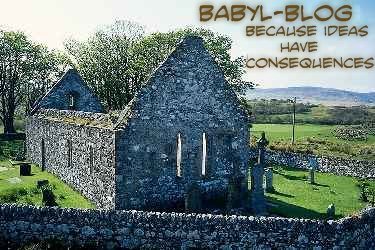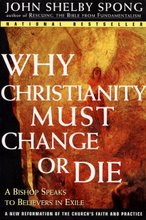 I. Overview:
I. Overview:This book in short is one man's story about the dark side of the multinational corporations for which he was employed to get 3rd world country's leaders to go along with the exploitative wishes of these companies. He worked for the Main company which was essentially in the family of Halliburton, Bechtel, and Kellogg Brown and Root. His job was to give economic growth predictions (if the aforementioned companies were employed to build infrastructure in the country) which would justify outlandishly large IMF and World Bank loans to said country.
The country would then take the loans which it would eventually default upon as it would be so tremendous and be under the thumb of these agencies. Prior to the default the multinationals would build infrastructure making hundreds of millions of dollars. The countries whose leaders were savvy enough to repudiate these loan offers, would be coerced or removed from office by what the author calls "jackals". If he failed to convince the leaders to take the offers the jackals would come in and deal with the situation, generally removing a courageous leader and installing a leader who would essentially be a puppet for US interests.
Needless to say this sort of work doesn't leave one with the purest of consciences, and the author/main character, John Perkins, was plagued by guilt. He knew well the game he was running was only further impoverishing the country's people, and ultimately that he was playing a part in a rather detestable US imperialism around the world. I found the strongest example he gave in the book to be in Panama.
Panama is situated in central America, and its chief source of prestige/economic revenue is the canal that joins the Pacific and Atlantic oceans, the canal zone was controlled by the US when Perkins became involved in Panama. Omar Torrijos who was the leader in Panama refused to fall for the exorbitant loan trap and further wanted to restore control of the canal to the people of Panama. This obviously did not sit well with those who benefited from US control of the canal. Eventually, after a long fight with the multinational corporations, and the US government Torrijos won the canal back for Panama.
This situation did not last long as shortly after the canal zone was won for Panama, Trijolles plane crashed in an "accident" killing him. Manual Noriega came to power after him and Panama was eventually invaded by US forces and the canal returned to US control. Just think about this, a country that posed no tangible threat to the United States, is invaded by the United States, entirely unprovoked.
The real reason for these jingoistic US policies, Perkins asserts, is that the countries simply were not playing ball with US imperialistic interests. Perkins gives numerous other examples of coups, assassinations through media or physically, and outright wars against other nations all based upon the fact that they won't acquiesce to US interests.
Perkins, eventually could not continue this work due to a guilty conscience and quit, he eventually put his history to writing and after the events of September 11th 2001 he decided to go public and publish it into a book.
II. Reflection:
A. Style and writing:
This book was very intriguing to me, I found Perkin's writing style to be somewhat refreshing for a NY Times best seller as most books that gain such popularity are typically written at a 5th grade reading level. I also appreciated that the book was free of profanity and crass sexuality, I got the impression that as Perkins was traversing the globe he probably adopted a sort of James Bond type approach to promiscuity. As I said "impression" because Perkins was never so crass as to explicitly talk about such amorous rendezvous with women, there just were a number of women that popped up throughout the narrative he seemed close to.
Another area I was also pleased with was Perkins jabs at Christianity. Not that I am glad he is an unbeliever, but rather that there was no section in the book where he launched into an insipid rant about how much he disdains Christianity as writers are want to do. There were a few comments here and there that alerted me as a Christian that he was in opposition to the gospel, he often spoke with not a little malignity about his "Parent's puritanical values", given his description of his parents values I wouldn't say they were puritanical so much as uppity.
Needles to say I was pleased with his restraint from revealing himself to be another blatherskite expounding a new age philosophy and denouncing Christianity. It has been pointed out to me that some of Mr. Perkins' other work in literature has to do primarily with pretty new age teachings. I am glad he kept that rubbish out of this work, as the subject's gravity and veracity would have been damaged by prattle about "psycho-navigation".
B. Content:
The book itself as I have stated is truly illuminating. I feel ashamed of my country and what it has done and is doing around the world. America truly is an imperialistic nation, as Ron Paul has pointed out, we have troops stationed in 130 nations around the world. Perkins explains how the propaganda machines here in America will create in the minds of people an enemy, who often are indeed bad guys like Sadaam Hussein, but their real crime is not going along with what the elites want.
Furthermore, the truly fascistic nature of the current US governmental systems is brought into view by Perkins. For instance it was no secret that Dick Cheyney was a former head at Halliburton, and it was just coincidence that Halliburton profited immensely from the Iraq war. George H W Bush was a head of United Fruit Company which forced itself upon Guatemala, who had another president who fought against the multinational corporations, who was removed through intrigue. Equador also had a leader who refused to give in to the demands of big oil companies wanting to extract oil in Equador, his helicopter crashed in an "accident".
The list goes on, you look at the members of almost any regulatory body in Washington and 9 times out of 10 the alleged regulators are formerly connected with the groups they are now "regulating" A great example is the Goldman Sachs US treasury connection, or the FDA and the Monsanto cooperation. Look up any prominent official in the executive wing of government it you will see nothing but individuals who have compromising pasts given their presently held positions. It is simply disgusting.
III. Bringing the Christian Worldview to Bear on this:
Perkins highlights many problems, and for this we are indebted to him and can thank him, but for solutions we must turn finally to Christ and His word to be our guide.
1. The universality of Christ's body, and the imago Dei.
This is one of the most precious truths of scripture, namely that all men are made in the image of God and posess dignity and are worth of our respect as such. This is why ALL men are my neighbor, because all men are Divine image bearers. (Gal 5:14, James 2:8)
This truth must be applied when dealing with global issues, as all too often we Christians fall prey to the bellicose foreign policy being peddled by talking heads on Television or in print. We need to remember there are more people of God than Americans, this might seem trite but you would be surprised at how willing Christians I talk with are to give their support to military assault on nations they know little about, resulting in the countless deaths of people they know little about, many of whom are fellow Christians.
My point here is that Christ has elect in every tribe tongue and nation (Rev 5:9), and it is the Christian's job to see to it that missions are done to fulfill the great commission across the world. Unfortunately, the blind support of nationalism and wars of aggression against 3rd world nations is counterproductive to missions, and the safety of the church in those countries.
And yes by this I mean Christians should be anti-war, I do not say pacifists (that is equally unbiblical), but anti-war (Psa 17:4, Ezek 18:10-17). War unleashes such carnage, destruction, injustice, and death of people made in the image of God that no one thinking biblically can give a cavalier assent to military action. (Jer 4:19) Unfortunately, war is necessary in a fallen world, which is why it should only be employed defensively and when all other options have been exhausted. (2 Thess 3:16, Heb 12:14)
As an aside, take the Iraq war for example, I don't know how many explanations I have heard as the "real reasons" why we have invaded that country unprovoked, many of which hold water, however NONE of them are the ones given to us by the government. Nearly everyone knows the war was fought for ulterior motives. This is why it digusts me to hear laurels of praise heaped upon our military for "defending our freedom" anyone who looks at the matter soberly knows Iraq was no threat to the freedom of Americans.

Probably the most disheartening moment I have had in talking with fellow believers about this very subject was when a brother who possesses an intelligence for which I have the utmost respect, flat out said "Yes we went there for the oil, we need it." this was his reasoning for defending the Iraq war and his support of it, we need oil. I was simply dumbfounded, and could just stammer "Do you know how many people are dead?" When Christians will countenance the death of countless people made in the image of God for a coveted substance, they are ceasing to think Biblically, are sinning, and need to repent. (Deut 5:17, 21)
2. Removal of party blinders.
Often the church when it comes to the political issues of our day is reduced to thinking within party lines rather than thinking Biblically. We need to stop thinking in the controlled boxes given to us (left vs. right) and let the word of God destroy the artificial boundaries of the controlled debate.
This means voting for candidates not because they have an (R) or a (D) next to their name, or voting for the knuckledraggers that the media informs us have the "best shot" to beat someone they say is even worse. A return to principle over partisanship is needed here. We should disdain as Christians the logic that so often has snookered us into "plugging our noses and voting" for an undesirable because of the threat of an even greater undesirable. This is how the logic follows: even though the guy with the "best shot" isn't all that great we should vote for him cause he's our best chance to beat Obama.
3. Being salt and light in the political arena.
Lets face it, America is rotting away. She is in the dusk of her empire (which is not necessarily bad). However, what once made her truly great can be revived, America's greatness was not in having military basis all over the world, nor in affluence. America was once great as she was a nation built on a Rock, men made in the image of God had unalienable rights, men were free to use their God given potential for industry and the enrichment of others, and as John Winthrop envisioned, America was to be a city on a hill and example of the freedom the Chrisitan worldview, if allowed, can bless man with.
This I believe can be recovered if Christians emboldened by the Spirit and the word of God were to become conversant politically again. Right now it seems most of the church bulimicaly regurgitates the talking points given to her from FOX News or talk radio, I would say as Luther did of the Papacy that there is Babylonian captivity in the church in the area of thinking biblically politics. In short, the church has a very dim light in the political arena if she really believes for instance that the likes of Sarah Palin or Mike Huckabee offer America a robust political reformation.
These candidates simply represent the same tired American imperialism with a Jesus fish on the bumper.
The church needs to stand for what is right, away with the talking heads and to the law and to the testimony. We need John the Baptists who are willing to call out kings' misconduct, this will involve: 1.Being informed, as the price of liberty is eternal vigilance and 2. Being bold, as all evil needs to triumph is for good men to do nothing.
IV. Conclusion
Perkins' book is a great read, it is difficult to put down in the sense that a car wreck it difficult not to glance at, you know it's ugly but part of you wants to know just how ugly. Perkins gives an un-televised version of 20th and 21st century American foreign intervention, warts and all as they say, and lets just say that the warts are rather large and hairy.
As far as concluding applications, particularly for Christians I would exhort us to love our neighbor, just as we would not morally support an armed group of thugs pillaging and looting our immediate neighbors, let us neither endorse the armed plundering of our global neighbors through supporting dubious military interventions by the government that rules us. Furthermore, we must strive to be Biblical in ALL our thinking, applying the Bible to ALL of life. Therefore, let us not be swept up into special pleading type arguments and all other rot that would divert us from the Biblical standards of life and ethics.











